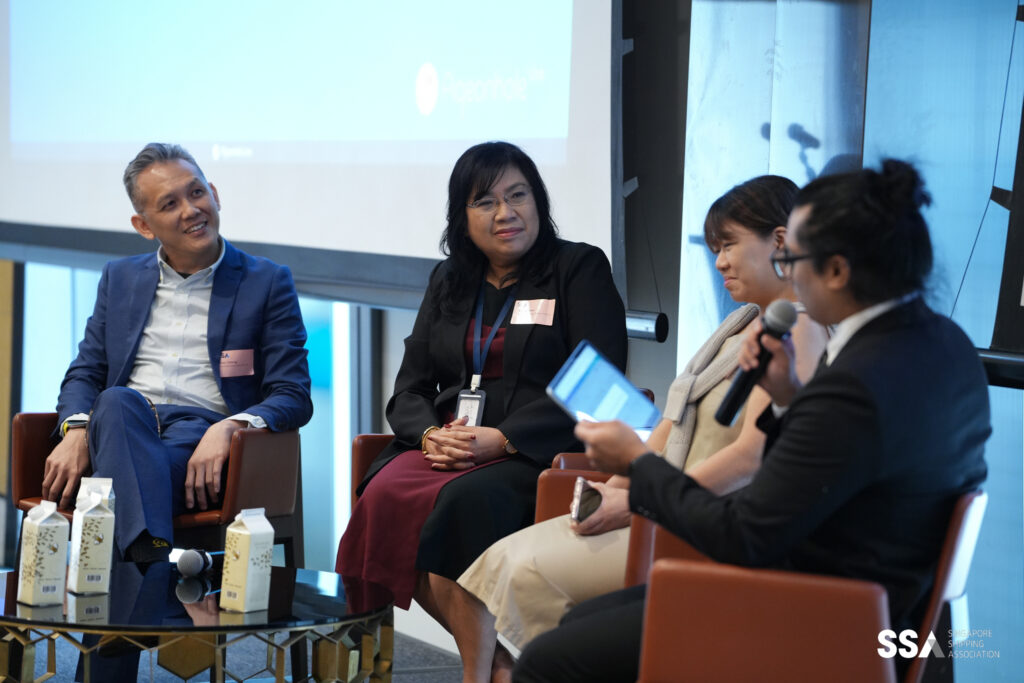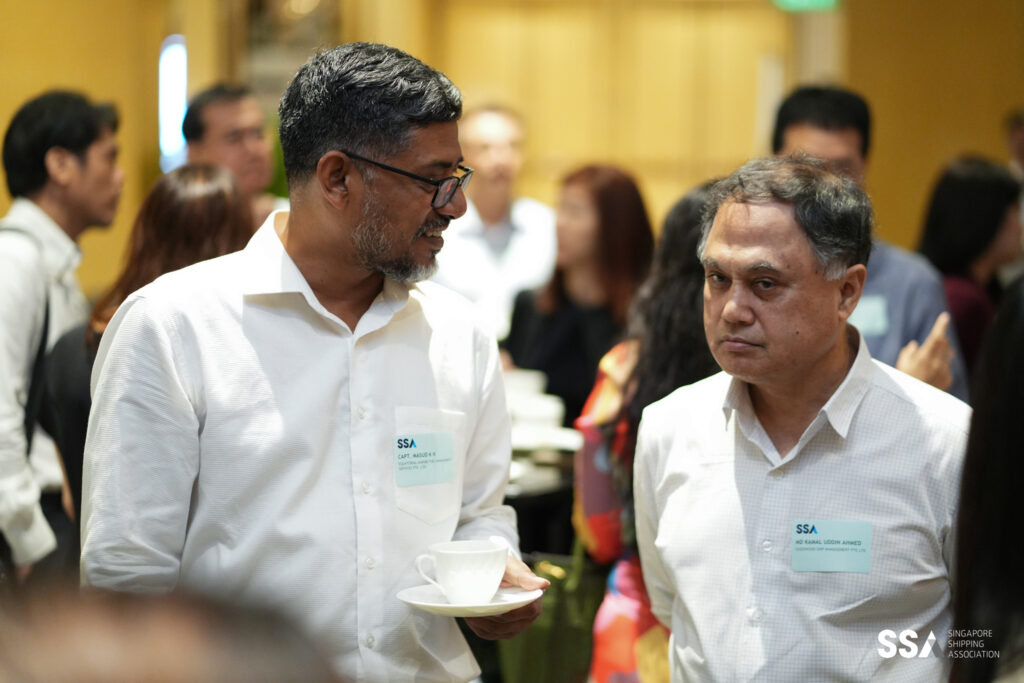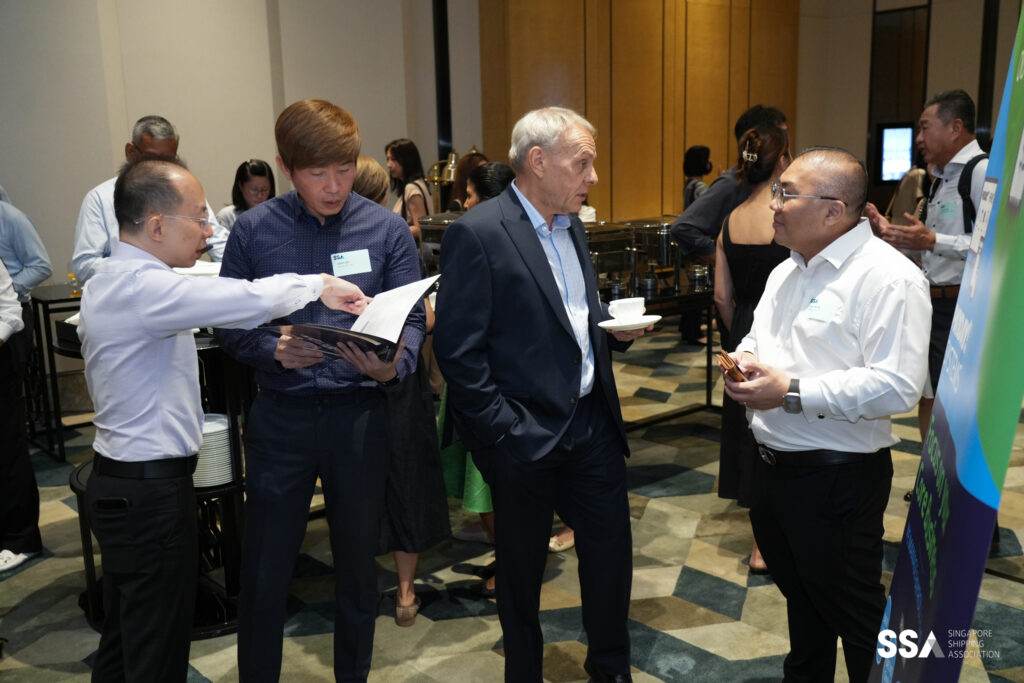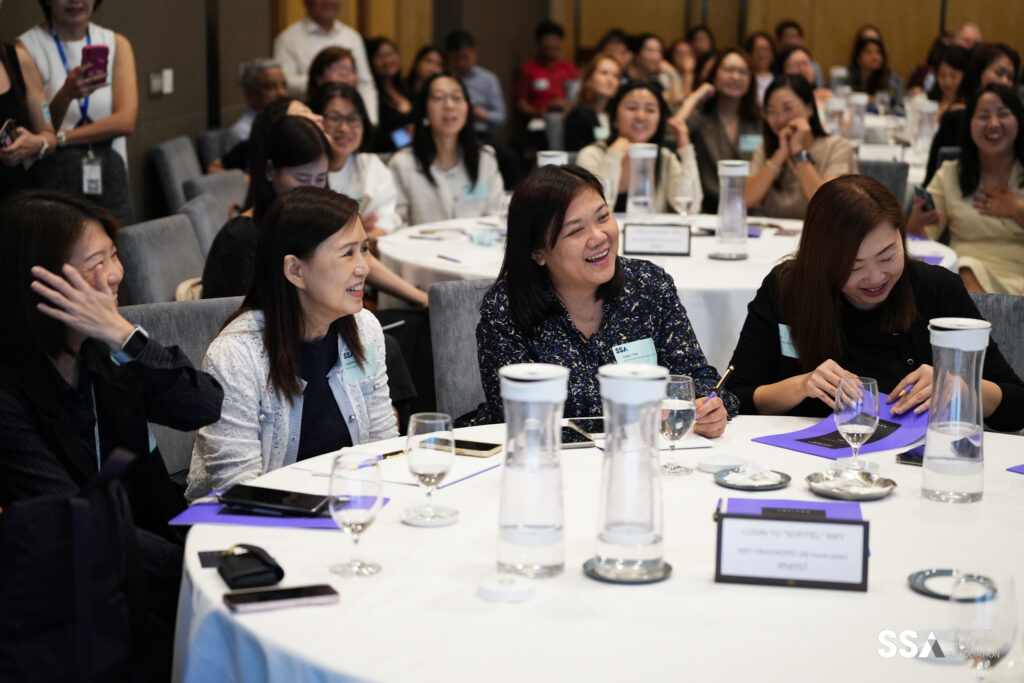
Organised by the SSA in partnership with RSM SG Assurance and the Tripartite Alliance for Fair and Progressive Employment Practices (TAFEP), the seminar saw attendance from over a hundred attendees, majority which were HR practitioners. Participants had the opportunity to learn more about the new Guidelines, its practical applications and key considerations employers might have.
With Singapore facing an ageing population and changes in work-life expectations, FWA becomes a powerful tool that can help employers attract and retain talent in the long-term, which is beneficial to both employers and employees. This was a point brought up in a presentation by Yeo Jia Yi, Senior Manager, Assurance, RSM that resonated with many in the audience.
Echoing these sentiments, Ms Caroline Yang, President of SSA said in her opening remarks that “There is no doubt that as an industry, we fully support the introduction of these guidelines. They enable all businesses including maritime companies, to manage FWA requests from their staff in a more sustainable and win-win manner. Given the many workforce challenges our companies face, the opportunity to embrace this shift in working culture through a structured and transparent process will help us attract and retain talent. But this has to be balanced with operational needs and productivity demands”.
Formalising FWAR Requests and Implementation
The TG-FWAR Guidelines, which comes into effect on 1 December 2024, sets out the importance of having a formal procedure put in place to allow employees to submit a formal written request to employers. In her presentation, TAFEP’s Senior Manager Industry Outreach and Marketing, Jessie Wong outlined that employers are required to respond to the request within 2 months, and to provide a written decision, including a business-related reason for any rejection. Employers are also encouraged to discuss alternatives if the original request made by the employee is not viable.
This was in line with RSM’s presentation, in which their Corporate Trainer, Philander Santhanaraj mentioned the importance for companies to regularly update their HR policies. He recommended companies practice a three-phase process whereby companies identify and codify their manpower needs and parameters, standardise and streamline their HR processes and finally regularly review the polices to ensure that their manpower plans for the future are met.
Can FWA work in the 24/7 Shipping Industry?
The Fireside Chat also gave attendees an opportunity to hear directly from local maritime companies on how they have implemented FWA practices, as well as any key concerns and challenges. The panel was made up of Simon Cheong, Chief Human Resource Officer at Pacific International Lines, Karen Pinto, Senior HR & Admin Manager at Tian San Shipping, Jessie Wong, Senior Manager Industry Outreach and Marketing from TAFEP and was moderated by Philander Santhanaraj, Corporate Trainer from RSM SG Assurance.
Mutual trust and communication between employers and employees are key in ensuring that both parties benefit from the arrangement. Employees should ensure that their requests are reasonable, and that they are still able to perform their tasks to standard. FWA is not a replacement of change in working hours and schedule, and employers reserve the right to reject unreasonable requests on business grounds.
Already, there are companies that have implemented FWA informally, such as offering employees hybrid working arrangements or allowing more flexibility such as staggered working hours.
To successfully implement FWA, it is vital that the company’s management is progressive and look at it as a way to help employees better manage their work and home commitments. In return, this helps the company with employee retention as well as being an attractive employer in the competitive market.
Accelerated by COVID-19, more companies are adopting informal FWA practices within their companies, not just within Singapore but globally as well. Panellists agreed that FWA can give companies a competitive edge in the hiring market, and that formal guidelines as introduced by TAFEP help to set clear expectations and rules that can benefit both employers and employees, as well as strengthen the workforce of the industry.
Resources To Help Companies Successfully Implement FWA
For more resources implementing Flexible Work Arrangement Requests, please refer to the below:
Tripartite Guidelines on Flexible Work Arrangement Requests (TG-FWAR)
Template for FWA Request Form [TG-FWAR Annex A]
Template for Employer Response Form [TG-FWAR Annex B]
Frequently Asked Questions [TG-FWAR Annex C]
Additional FAQs on TG-FWAR (Added on 19 August 2024)
TAFEP also provides free self-help resources and training:
Implementing FWA E-Learning Course. This is a 60-minute e-learning course designed for business owners, and IHRP-certified participants will be awarded 1 CPD hour.
For photos of the event, please visit our Past Events Gallery


